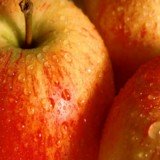Eating Whole Foods Summarized
Eating Whole Foods Diet, For Health and Recipes
Eating a diet of whole foods can help you get the nutrition you need to fuel your day to day activities, whether you have an active lifestyle or not. Whole foods are foods that have not been refined. In other words, they are foods which have not had significant, edible, and vital portions of nutrients removed out of them or altered.
So having this definition under your belt, stopping to consider what you want to eat before you eat it makes many of these dietary decisions apparent. In fact, you will be on your way to a healthy eating lifestyle.
 When embarking on a whole foods diet, it is important that you know the following points:
When embarking on a whole foods diet, it is important that you know the following points:
- Genetically modified foods are not whole foods. These meats will have an unnatural balance of fatty acids, contain pesticide or herbicide residues, and have added hormones and antibiotics.
- This is also true of the products they produce, that is, milk and eggs.The same applies for conventionally grown produce. They contain residues of herbicides, fungicides, pesticides.
- They may also be genetically modified and or brightened, and are often lacking in nutrients due to the depleted soil in which they are grown. Wherever it is possible, get organic meat and produce.
- Foods that have added chemicals in them are not whole foods. Examples of such chemicals include preservatives, artificial sweeteners, colors and flavors and flavor enhancers such as monosodium glutamate (MSG).
All of them should be avoided as much as possible as none of them have been specifically proven to be safe. In fact, many of these additives have been proven to cause health problems. - Synthetic foods are obviously not whole foods. Powdered drink mix is an example.
- Foods that have had their nutrients stripped out of them are obviously not whole foods. Many nutrients are delicate or very unstable. When whole foods begin to be refined and the nutrients are exposed, they begin to break down, dissipate or even become rancid.
Wheat germ oil is one example which begins to go rancid when the whole grain is ground into flour. Manufacturers have learned to remove these less stable portions of food in order to extend the shelf life of their products. Sadly for us though, the very portions which are removed are the primary nutrient sources in the foods.
 If you want to embark on a whole foods diet, whole grains and legumes should be at the top of your list. Most people begin their eating whole foods journey with whole grains.
If you want to embark on a whole foods diet, whole grains and legumes should be at the top of your list. Most people begin their eating whole foods journey with whole grains.
They are packed full of nearly all of the vitamins and minerals our bodies need, especially B vitamins. Refined grains have almost no nutritional value. Whole wheat contains 40 of the 44 nutrients.
When whole wheat is refined, nearly all of the vitamins and minerals are removed, and depending on the producer, four to five are "replaced" to try and "enrich" the end product.
The problem with this however, is that there will be an imbalance of nutrients, as the vitamins with which the grain product is enriched is added in unnatural ratios.
It's been found that a whole foods diet, because of the foods it consists of, can provide protection from colon cancer. To be precise, there are certain nutrients in the diet which do the trick. And these are phytic acid, oxalic acid and tannic acid.
Phytic acid is found in whole grains. Oxalic acid is found in spinach and strawberries just to name a few. And tannic acid is found in grapes and blueberries. To learn more about this and have more ingredients under your belt, read the article healing with whole foods.
As mentioned earlier. When eating whole foods, whole grains will be a part of your diet. So what are whole grains you may ask? They are basically grains such as wheat, oats, rice and so forth, that have not been refined.
The refining process removes the nutritious germ and the bran. There are also many other grains to choose from and include in your diet. These are quinoa, barley, millet and amaranth. You can learn more about these and how to cook them and what nutrients they provide in the article whole grains.
 Legumes are a good food group to include in your diet. Beans, lentils and dried peas are good examples of legumes. When combined with grains, seeds or dairy products, beans provide an excellent source of complete protein.
Legumes are a good food group to include in your diet. Beans, lentils and dried peas are good examples of legumes. When combined with grains, seeds or dairy products, beans provide an excellent source of complete protein.
They are high in carbohydrates and soluble fiber. Did you know that just one cup of beans per day can lower cholesterol as effectively as two-thirds of a cup of at bran. Beans are a good source of vitamins B2 and E, calcium, potassium, iron and phosphorus. You can learn more about beans in bean nutrition.
Some other good legumes include soy beans which are also a good source of complete protein, black beans and split peas. There are also many whole foods other than grains and legumes which are rich in nutrition. Orange, red and yellow fruits and vegetables provide antioxidant compounds like vitamin C and carotenoids.
You can get an outstanding source of calcium, folic acid, trace minerals and magnesium from dark green, leafy vegetables. Broccoli, cauliflower and red cabbages, also known as cruciferous vegetables, are thought to have cancer-preventing properties. Sea vegetables such as nori and wakame are high in B vitamins, magnesium and boron.
Eating Whole Foods To Lose Weight
 Generally speaking, when you want to lose weight, it's all about the proportions of food that you consume. Obviously, eating whole foods to lose weight works.
Generally speaking, when you want to lose weight, it's all about the proportions of food that you consume. Obviously, eating whole foods to lose weight works.
This is because you would have eliminated a lot of the processed, synthetic and genetically modified foods which play a significant role in weight gain, as well as health issues.
So, as with every other diet, you need to know and understand the food pyramid diagram. It will help you in making the right decisions in terms of what to eat and how much of it you are supposed to eat. Bananas, oranges and strawberries are also some of the fruits that have been proven to aid in losing weight.
Benefits of Eating Whole Foods
 Having read this article up to this point, surely it is more than apparent what the benefits of eating whole foods are. But just in case it isn't we'll recap on a few;
Having read this article up to this point, surely it is more than apparent what the benefits of eating whole foods are. But just in case it isn't we'll recap on a few;
- Eating whole foods aids in the protection from colon cancer.
- There are also cancer preventing properties in cruciferous vegetables like cauliflower, broccoli and red cabbage.
- Eating whole foods will also aid in weight loss and in maintaining a healthy weight.
- Whole foods are amongst the foods that fight pain.
- Your body is kept in tip top shape both in the inside and on the outside as you would have eliminated all the processed and synthetic foods which are detrimental to your health. . These are just but a few examples of the benefits you get from eating whole foods. There are plenty more you can read about in whole foods diet.
Eating Whole Foods On A Budget
Eating healthy has for most of the part been deemed as very expensive. However, when you know where to get your produce you can easily leap over this hurdle. So when it comes to eating whole foods on a diet, the same applies.
Try to purchase your products from your local farmers' market. You can get great deals from there. Most whole foods are not difficult to store, so you can buy in bulk. Read more on how to store your food correctly in the article eating healthy on a budget


